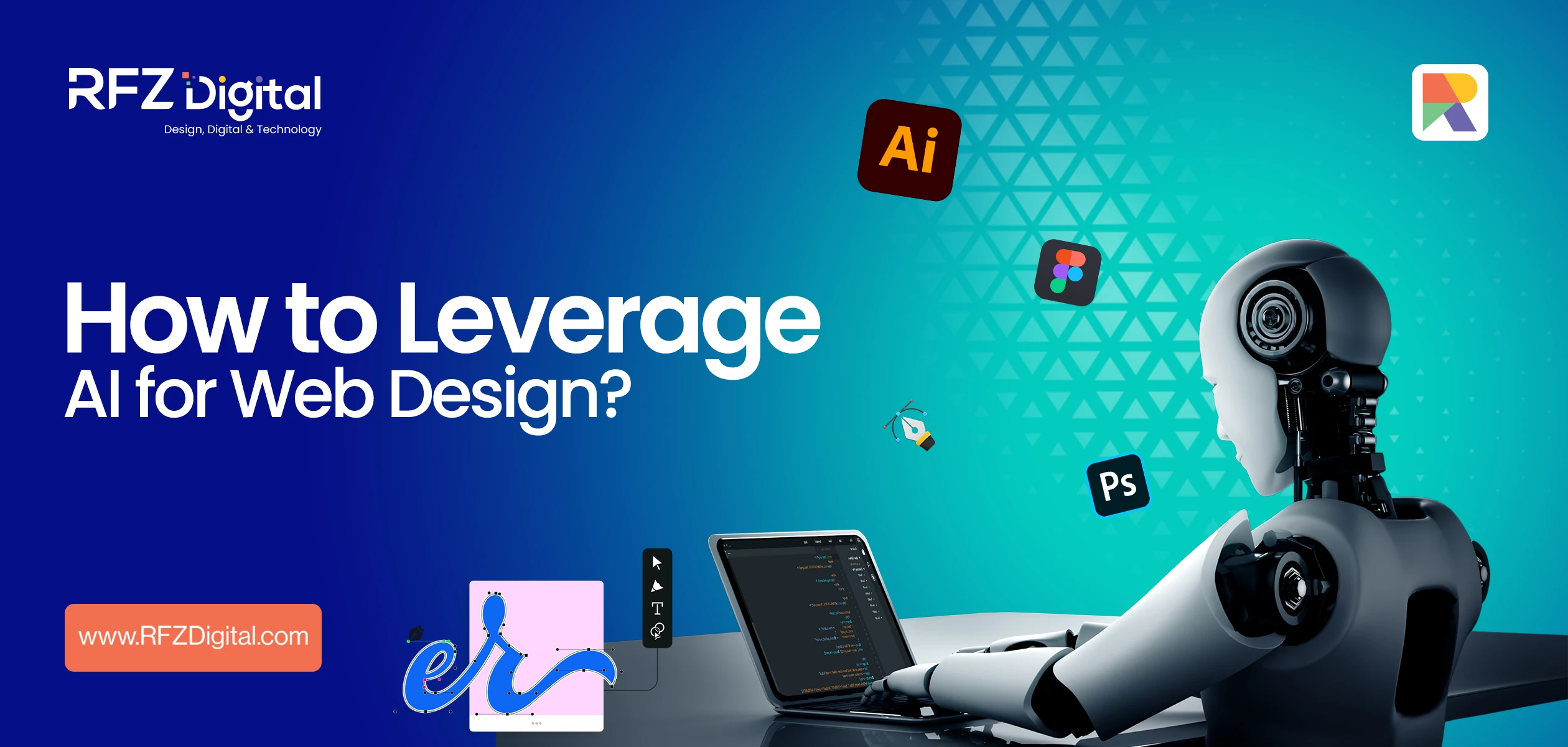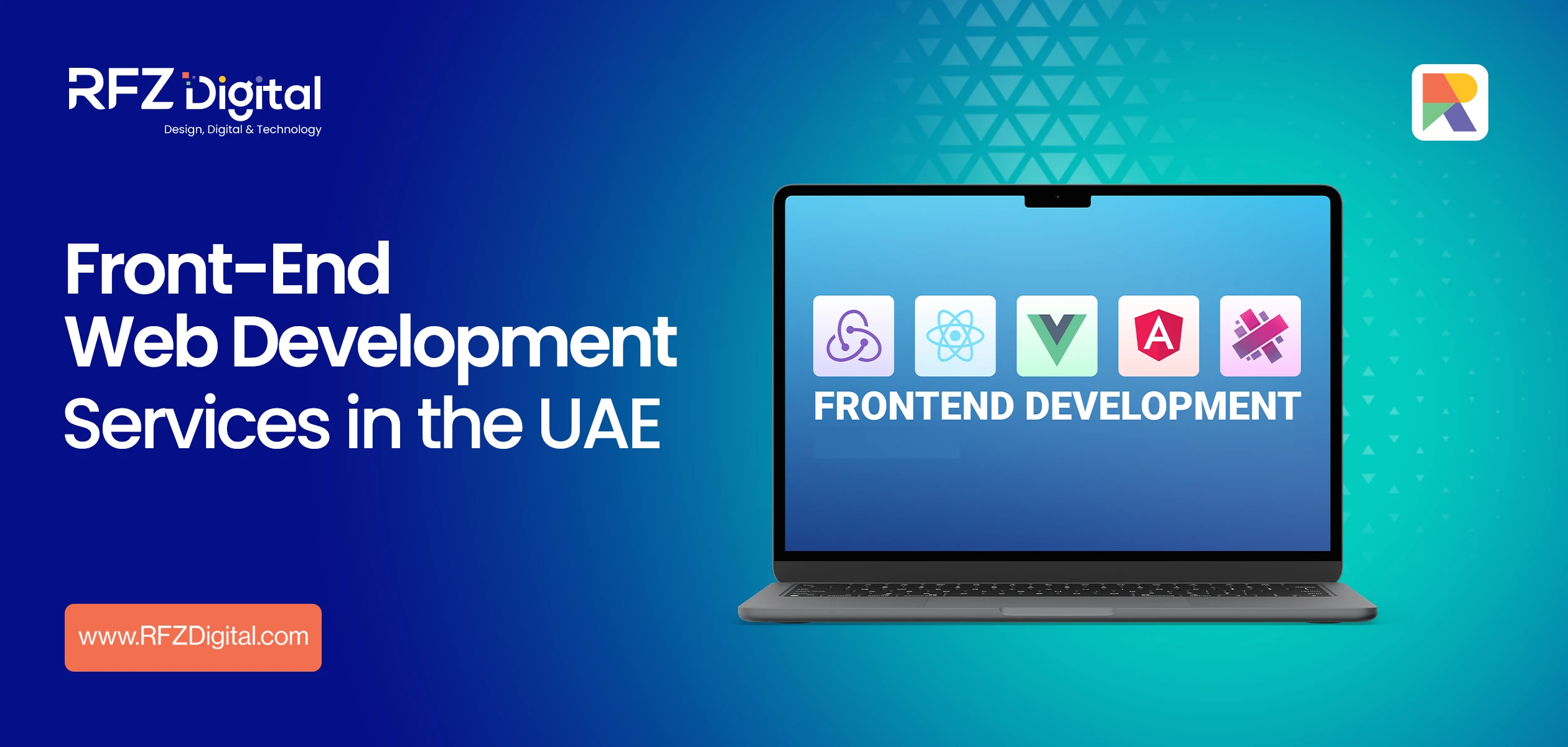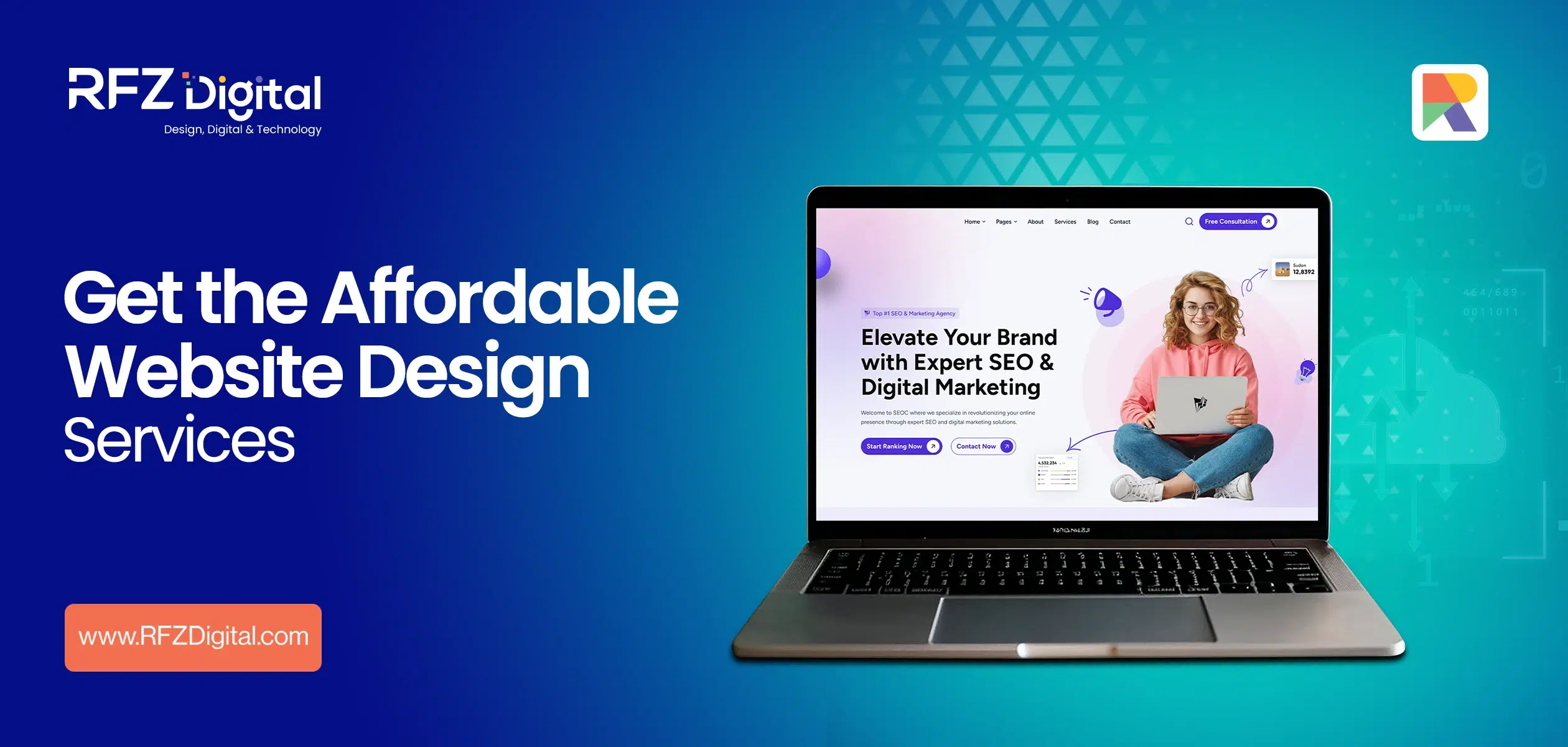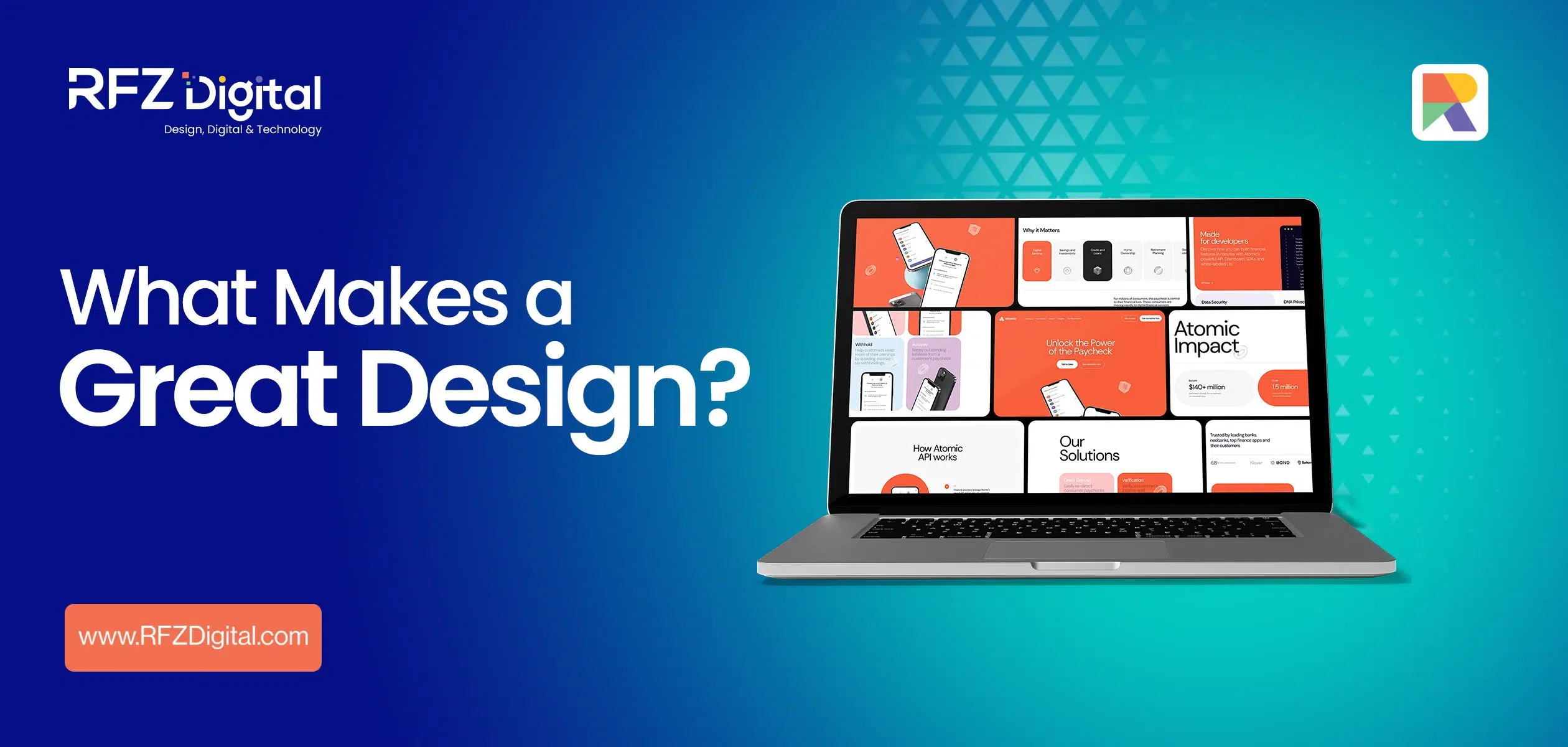Welcome to the future of web design! AI technology is transforming the way we create websites, making the process smoother, more intuitive, and more efficient. Are you ready to harness the power of AI to enhance your online presence? Forging websites with AI intelligence doesn't have to be daunting; it can be simple and enjoyable.
Here's an expansive guide, specially curated for beginners and brimming with 4th-grade-friendly language, to help you incorporate AI tools into your web design strategy. Read on to learn how to use these innovative tools to craft a sleek, seamless website that speaks volumes about your brand.
Unveiling the Power of AI For Web Design
AI for web design isn't just a passing fad. It's a seismic shift in how we conceptualize, create, and maintain our digital spaces. Whether you are a seasoned web designer, a budding entrepreneur, or someone who's curious about the future of the internet, AI-powered web design tools have something valuable to offer. The integration of AI in web development and design has demonstrated its potential to enhance and streamline the process.
By understanding AI's potential, we can demystify its capabilities and learn how to become adept at AI-driven web design. Here's a lowdown on why AI design tools are making waves:
AI for Web Design: More Than Meets the Eye
Gone are the days when web designers spent hours poring over code or tirelessly tweaking layouts. AI for web design introduces a whole new level of automation. With its deep learning capabilities, AI can predict design trends, enhance user experience, and suggest changes that would have taken hours in mere seconds.
Benefits of Using AI for Web Design
- Aesthetically Pleasing Designs: AI can analyze user preferences and design elements, helping you create visually striking websites.
- Streamlined Design Processes: By automating repetitive design tasks, AI tools cut down on manual labor, allowing designers to focus on creative decisions.
- Better User Experience (UX): AI tools can predict user behavior, allowing you to build websites that are more intuitive and user-friendly.
- Faster Turnaround: The efficiency of AI tools can significantly speed up the design process from conception to launch.
Types of AI Web Design Tools
Before you dive into the exciting world of AI web design, it's super important to know about all the different tools you can use to create awesome things. Imagine these tools as different sets of special powers that help you build amazing websites and make them look really cool. Let's take a closer look at some big groups of these tools, like how you have different types of toys to play with, but these tools are for designing websites on the computer.
Generative Design Tools
Generative AI is like having a super creative helper who can make lots of different designs when you tell it what you like. It's kind of like asking your friends for ideas on how to draw something, but instead of friends, it's a smart computer program! This amazing helper uses special math rules to come up with different ways to put colors, shapes, and words together to make awesome designs. It's like magic because it can help you think of new ideas and save time when you're making things look really cool on the computer.
Content Creation and Curation Tools
AI isn't just about making pictures and videos look awesome. It can also help you write cool stuff for your website, like stories about things you like or explaining what your superb new toy does. These smart AI tools are getting really good at writing words that make people interested in what you're talking about. They can help you tell stories about your favorite games or tell everyone why your new things are so amazing. It's like having a super brainy friend who's really good at writing and can help you make your website sound really impressive!
Analytics and User Behavior Prediction Tools
AI analytics tools are like having a crystal ball for your website! They can guess what people might do when they visit, so you can make your website even better. It's like when you're playing a game, and you know what move your friend might make next. These smart tools can help you decide how to arrange things on your website to make it super fun for your visitors. It's like having a secret map that shows you the best way to set up your website so that everyone who visits has a really great time.
Getting Started with AI for Web Design
Now that we've learned all about how cool AI can be, it's time to get our hands dirty and start using it for ourselves. I'm going to show you a simple way to add AI to the things you make on the computer. It's like following a recipe to make your favorite cookies, but instead of cookies, we're making something awesome on the internet! I'll tell you each step, kind of like taking a journey where you learn something new at each stop. Let's get ready to bring some AI magic into the things you create online.
Determining Your Design Goals
First, let's start by thinking about what you want your website to do. Do you want it to tell people about things, like your favorite games or animals? Or do you want to show everyone your amazing playthings for sale? Maybe you want to make people laugh with funny videos and jokes. Whatever you want to do, it's like making a plan for an incredible adventure. Then, we'll bring in the smart AI friend to help us, but we have to tell it what we want. It's like asking a really good chef to cook your favorite meal you have to tell them all the yummy things you want in it. So, let's make a list of all the important things you want your website to do and what you hope will happen when people visit. This will help us make sure the AI helper knows exactly what we want, and then we can get started on making your website super duper impressive.
Choosing the Right AI Web Design Tool
With your goals in mind, it's time to select an AI web design tool that aligns with your needs. Do you need help with layout design? Try tools like Wix or Adobe XD. No matter your focus, there's likely an AI tool that can assist you.
Learning to Work With AI
Like any new technology, there's a learning curve with AI. Take advantage of tutorials, forums, and support resources offered by your chosen AI tool. The more you familiarize yourself with the tool, the more you can capitalize on its capabilities.
Integrating AI With Your Design Process
AI should be an integral part of your design workflow, not an afterthought or a stand-in for creativity. Start incorporating AI into your usual process. For instance, if you're using a generative design tool, begin by observing the suggestions it makes and tweaking them to fit your brand's ethos.
Keeping the Human Element in Design
Remember, AI is a tool in the designer's toolbox, not a substitute for human insight and creativity. While AI can speed up the process, the art of web design still lies in crafting meaningful experiences for human visitors.
Iterating and Improving
The beauty of AI for web design is the agility it brings. Use AI tools to test variations of your web design, gather user feedback, and iterate based on results. This constant refinement will result in a website that evolves with your audience's preferences.
Staying Informed About AI Advancements
AI technology is in a state of rapid evolution. Keep up with the latest updates and advancements in AI for web design to ensure you're taking advantage of the most cutting-edge solutions.
Practical Examples of AI in Action
To make this all more concrete, here are a few examples of how AI can transform different aspects of web design.
Visual Design
Imagine you're building an e-commerce site. You can use generative design tools to experiment with different product grid layouts and instantly visualize how they'll look. These tools may suggest variations that optimize for sales conversions or that align with current design trends.
Content Creation
Content is king, as they say, so ensure your website's copy is regal. AI tools can create content that's not only grammatically correct but also resonates with your audience and boosts SEO. They're not about replacing human writers but assisting them by providing a starting point or alternative perspective on the content that may have been overlooked.
UX Enhancement
Good UX means visitors stay longer and engage more. AI can suggest ways to improve your website's navigation based on how visitors tend to browse similar sites. It might mean placing your call-to-action in a slightly different spot, making a button larger, or changing color for better visibility.
The Ethical Implications of AI for Web Design
With great power comes great responsibility. It's essential to consider the potential downsides and ethical concerns of relying on AI for web design.
User Privacy
When using AI to personalize content, be mindful of user privacy. Ensure you're transparent about the data you collect and how it's used.
Inclusivity and Diversity
AI bias is a real concern, especially in design. Be aware that AI models are only as fair and representative as the data used to train them. It's your role to ensure your AI-aided designs are inclusive and not inadvertently biased.
The Value of Human Labor
AI can automate many tasks, but it shouldn't devalue the work of human designers. Since AI is still a tool that needs human creativity and direction, designers should not feel threatened by its rise but rather empowered by its potential to augment their skills.
Legal Considerations
Make sure you understand the legal implications of using AI in your web designs, particularly in areas such as copyright, trademark infringement, and intellectual property rights.
Case Studies: AI-Driven Success Stories in Web Design
To further illustrate AI's potential in web design, here are a couple of success stories that demonstrate the real-world impact of these technologies.
E-Commerce Overhaul
An e-commerce company used AI to overhaul its website, automating the creation of product descriptions, improving search functionality based on user behavior, and generating personalized recommendations. The result? A 20% increase in sales and significantly reduced bounce rates.
Start-up Launch
A tech start-up employed AI to design its website from scratch, using generative design tools to quickly experiment with different layouts and color schemes. By using these AI insights, the start-up was able to launch a professional website in record time with a limited budget, impressing investors and customers alike.
Conclusion
AI is not a distant promise for web designers; it's a tool that's reshaping the industry as we speak. By understanding the capabilities of AI, selecting the right tools, integrating them into your design process, and remaining ethically aware, you can create websites that are not only visually stunning but also deeply attuned to user needs and preferences.
The future of web design with AI is a collaborative one, where human intuition and AI insights work in tandem to create online experiences that are truly remarkable. Whether you're a business owner looking to improve your online visibility or a designer eager to stay ahead of the curve, AI for web design holds the key to unlocking a world of unprecedented creativity and efficiency.
Now, equipped with this knowledge, go forth and harness the power of AI to take your website to the next level.

 0
0





Comments:
No comments yet. Be the first to comment!